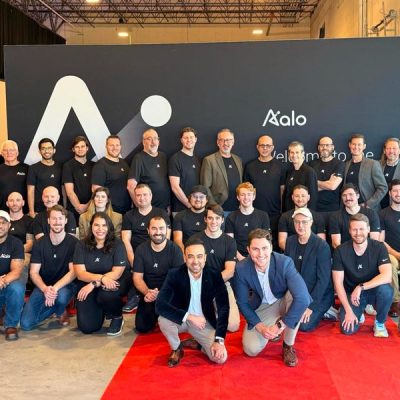The manufacturing industry is undergoing a transformation driven by AI manufacturing assembly, where companies harness advanced technologies to streamline operations and enhance productivity. Recent studies indicate that 93% of manufacturers have implemented AI initiatives within the past year, showcasing a seismic shift towards automated assemblies. For example, partnerships between leaders in AI, like Siemens and Dirac, are not only innovating traditional methods but also attracting significant investments from firms such as Coatue Management. These developments indicate the potential for major efficiency gains and cost reductions in US manufacturing.
Impact of AI on Manufacturing Efficiency
Harnessing AI technologies has proven to optimize manufacturing processes, resulting in reduced downtime and improved output. As companies integrate machine learning algorithms into their assembly lines, predictive maintenance and quality control become highly effective. For instance, firms like IBM report significant enhancements in production line management, enabling a more agile response to market demands. This shift not only facilitates faster production cycles but also results in substantial cost savings for manufacturers.
Challenges in Implementing AI Technologies
While the benefits of AI manufacturing assembly are clear, integrating these technologies also presents challenges. Companies often face issues related to data management and the need for skilled personnel who can navigate complex AI solutions. For example, a significant number of small and medium-sized enterprises (SMEs) struggle with the initial costs of adopting AI systems, as highlighted by Assembly Magazine. Strategies to mitigate these challenges include phased implementation and continuous training for staff to operate new AI-driven tools effectively.
📊 Key Information on AI Integration
- Investment in AI: Increased by 60% in 2024
- AI in Quality Assurance: Reduces error rates by up to 40%
Future Trends in AI Manufacturing Assembly
The future of AI manufacturing assembly is promising, with trends indicating an increased reliance on collaborative robots (cobots) and enhanced human-robot interactions. As systems grow smarter, manufacturers will leverage AI to foster innovation in product design and create more flexible production environments. According to a forecast by NVIDIA, the integration of AI systems is expected to expand, leading to further enhancements in operational efficiencies and productivity metrics across industries.
Key Takeaways and Final Thoughts
The integration of AI manufacturing assembly represents a significant leap forward for the manufacturing sector. The strategic implementation of AI not only enhances productivity and reduces costs but also provides a framework for innovation and scalability. As noted, embracing these technologies can lead to transformative outcomes that are crucial for competing in a rapidly evolving market.
❓ Frequently Asked Questions
What are the benefits of AI in manufacturing?
AI enhances efficiency, reduces costs, and improves quality in manufacturing processes, offering significant competitive advantages through automation and data analysis.
How is AI being used in assembly lines?
AI technologies enable predictive maintenance, real-time quality control, and improved robot-human collaboration, streamlining assembly line operations significantly.
To deepen this topic, check our detailed analyses on Startups section







